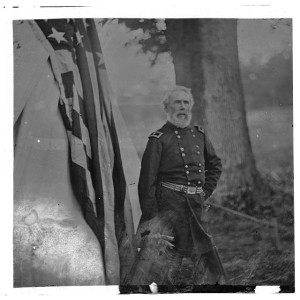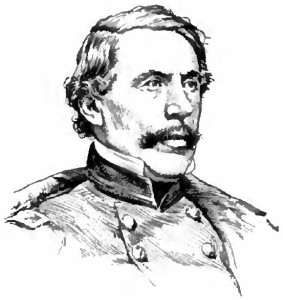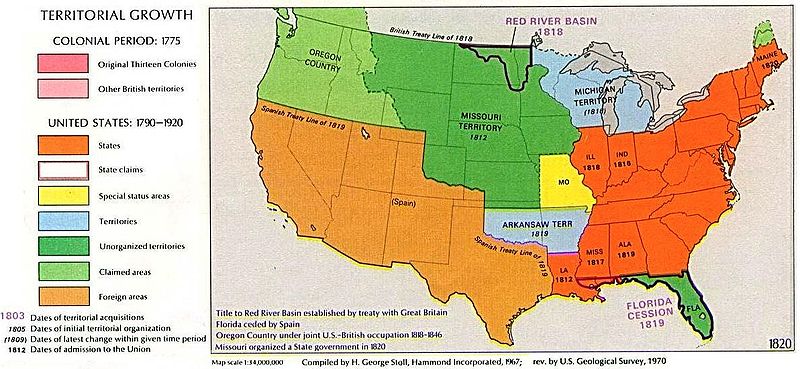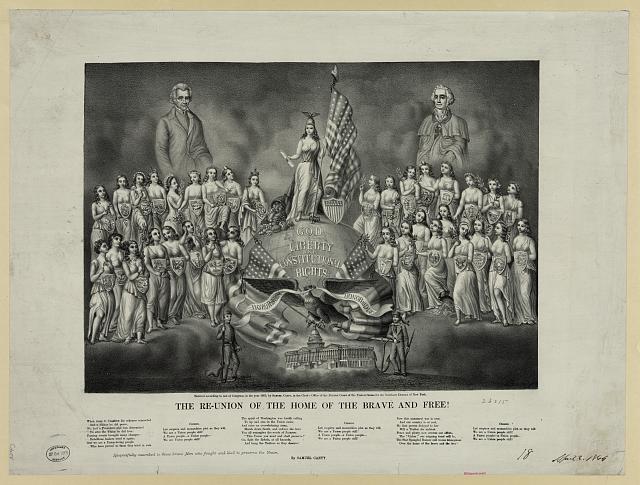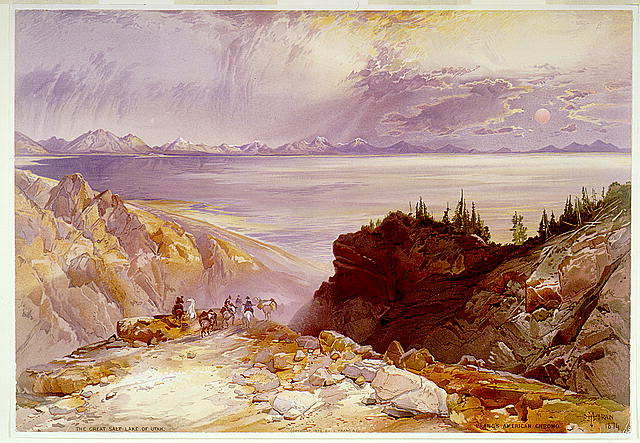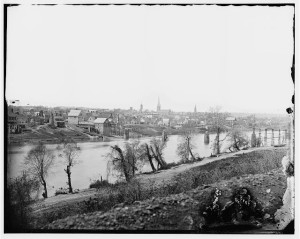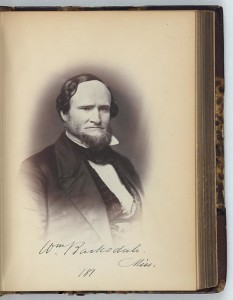Sometimes when I reproduce racist articles I feel like me and 150 years are ganging up on the people in the story – I have no idea what my thoughts and actions would be like if I lived so long ago. If we’re all just genes and environment, my environment definitely would have been different. I can be kind of set in my ways, set in my thoughts. I guess I want to try not to judge the actors; I want to respect and learn from the history.
Even though the following might just be a “story”, I thought it was worth putting up because it shows the reality of shortages and inflation during the war. Also, the same newspaper that alluded to the relatively newly developed science of atomic theory a few days ago, thinks it is a “good story” that the doctor here took out his frustrations on three helpless little people (probably pieces of property).
From the Richmond Daily Dispatch March 21, 1863:
A good Hotel story.
-In Atlanta, last week, a little incident occurred in the hotel has of business which is worth reading. The second party to the joke was the proprietor of the Atlanta Hotel. The Atlanta Confederacy says:
A Lieutenant Colonel, who was wounded at Murfreesboro’, who had been stopping a while with him, on the 20th day called for his bill, The obliging clerk handed him the document with 20 days multiplied by $4. The Colonel scanned the bill and observed its footing up–$80. He turned to the doctor, who was present, and asked him if he did not think that pretty heavy. The doctor, with that peculiarities of the head which indicates a small whirlwind, said:
“No; if you had to pay four dollars for a cobbler, one dollar a dozen for eggs, four dollars a pound for Ric[e] coffee, one dollar twenty-five cents for butter, fifteen dollars a bushel for potatoes, and five dollars a pair for shad, you’d think it was light! “
The Colonel ran his eye over his bill again and quietly replied:
“Well, I have been here twenty days, and d — n the article you have mentioned have I seen on your table.”
It is said that the doctor rushed out into the back yard, and did not cool off until be had whipped three little niggers.
It is said that fire-eating Dr. James P. Hambleton founded the Atlanta Southern Confederacy in 1859. He sold the paper in 1861 to join the Confederate army. In late April 1863 Dr. Hambleton was arrested in New York City with a large amount of Confederate currency in his possession. It seems like a pretty interesting story that involves General John Wool. And the writ of habeas corpus was actually invoked. Here’s the first paragraph from The New-York Times May 13, 1863:
LOCAL INTELLIGENCE.; The Case of James P. Hambleton. RETURN OF GEN. WOOL TO THE WRIT OF HABEAS CORPUS. RETURN OF GEN. WOOL.
Some two weeks ago Mr. JAMES P. HAMBLETON, of Georgia, formerly editor and publisher of the Southern Confederacy, a paper rendered infamous by the publication several years ago of the “black list” of New-York merchants, (those not supposed to be favorable to the peculiar institution,) was arrested in this city having lately come from Georgia, and having in his possession $27,000 of Confederate money and bonds. When arrested, HAMBLETON claimed to be a Union man and to have opposed the rebellion from the start; but the fact of his having in his possession so large an amount of Confederate money, coupled with his own declaration that he intended soon to return to Georgia by way of Nassau, was regarded as sufficient cause for his detention, and he has since that time been in the custody of the Government authorities, nominally confined in the Park Barracks, but in reality allowed what might be called the freedom of the City. Last week a writ of habeas corpus was issued by Judge MCCUNN to Capt. ARMSTRONG, of the Park Barracks, and Gen. WOOL, requiring them to produce the body of HAMBLETON for the purpose of inquiring into the cause of his detention. On Saturday Capt. ARMSTRONG made return to the writ that he held him by virtue of an order from his superior officer, Gen. WOOL. He also produced the body of HAMBLETON, and Judge MCCUNN adjourned the hearing of the case to 3 o’clock Monday afternoon. At the hour appointed, SAMUEL G. GLASSEY, Esq., as counsel for Gen. WOOL, appeared and made the following further return to the writ: …
Yeah, the Times said this doctor’s newspaper published a “black list” of antislavery New York merchants.

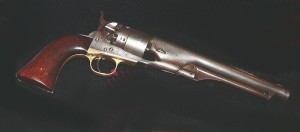
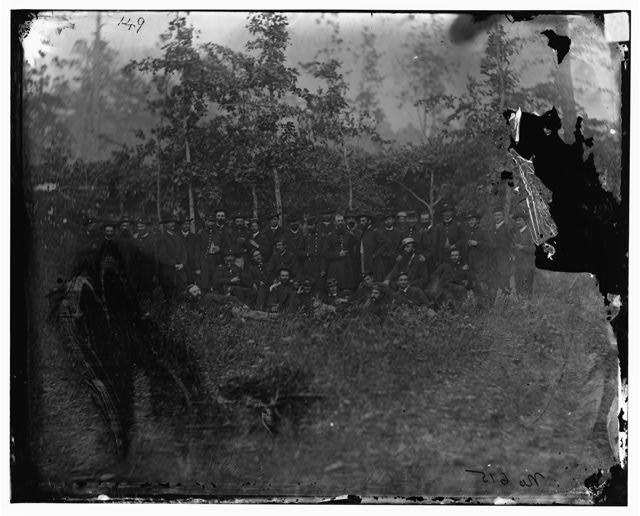
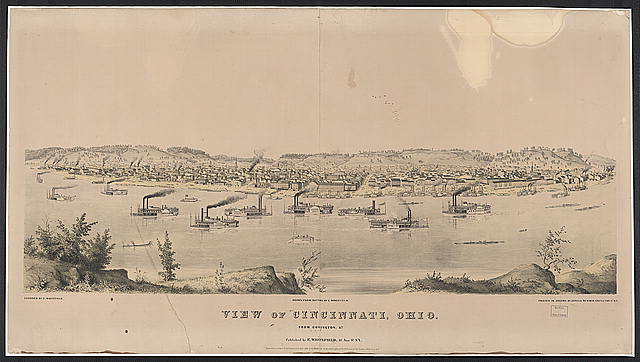
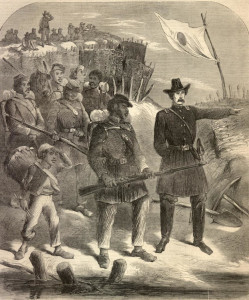
![Religious service aboard the monitor Passaic, Port Royal, S.C., 1863 ( photographed 1863, [printed between 1880 and 1889]; LOC: LC-DIG-ppmsca-33818)](https://www.bluegrayreview.com/wp-content/uploads/2013/03/33818r.jpg)
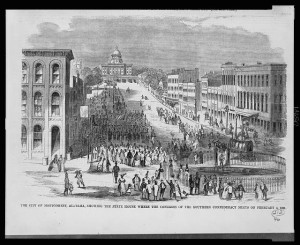
![The savages let loose, or The cruel fate of the Loyalists ( Sold by W. Humphrey No. 227 Strand, [1783 March]; LOC: LC-USZC4-5256)](https://www.bluegrayreview.com/wp-content/uploads/2013/03/3g05256r.jpg)
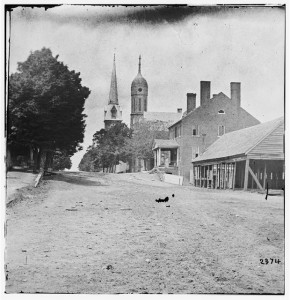
![Street in Fredericksburg, Va., showing houses destroyed by bombardment in December, 1862 (photographed 1862, [printed between 1880 and 1889]; LOC: LC-DIG-ppmsca-32890)](https://www.bluegrayreview.com/wp-content/uploads/2013/03/32890r.jpg)
